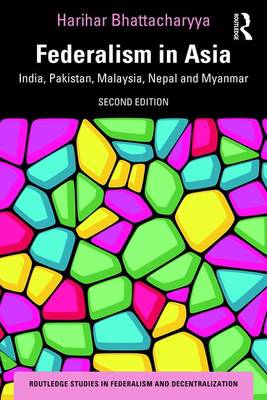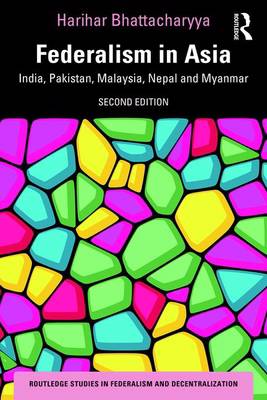
- Retrait gratuit dans votre magasin Club
- 7.000.000 titres dans notre catalogue
- Payer en toute sécurité
- Toujours un magasin près de chez vous
- Retrait gratuit dans votre magasin Club
- 7.000.0000 titres dans notre catalogue
- Payer en toute sécurité
- Toujours un magasin près de chez vous
Description
This comprehensive book critically analyzes the successes and failures of federalism in India, Pakistan, Malaysia, Nepal and Myanmar for the political accommodation of ethno-regional diversity and assesses their comparative democratic significance for other countries in Asia.
This revised new edition incorporates updated demographic, religious and linguistic data for the case study countries and examines some of the major changes that have taken place in formally federal states since 2010, including the 18th Amendment of the Constitution in Pakistan in 2010, which gave a major turn to decentralization by empowering the provinces; the new federal democratic Constitution that was introduced in Nepal in 2015; and the abolition of the Planning Commission and the National Development Council in India. The author thematically examines the growing tensions between nation and state-building in ethnically plural societies; modes of federation-building in Asia; persistent ethnic tensions in federations and the relationship between federalism and democracy; and federalism and decentralization.
The book will be of use to advanced undergraduate and postgraduate students of Asian politics, comparative federalism and modern Asian political history and institutions, as well as policy makers on ethnic conflict regulation and peace studies and stakeholders in ethnic power-sharing and political order.
Spécifications
Parties prenantes
- Auteur(s) :
- Editeur:
Contenu
- Nombre de pages :
- 262
- Langue:
- Anglais
- Collection :
Caractéristiques
- EAN:
- 9780367418182
- Date de parution :
- 05-08-20
- Format:
- Livre broché
- Format numérique:
- Trade paperback (VS)
- Dimensions :
- 156 mm x 234 mm
- Poids :
- 371 g

Les avis
Nous publions uniquement les avis qui respectent les conditions requises. Consultez nos conditions pour les avis.






